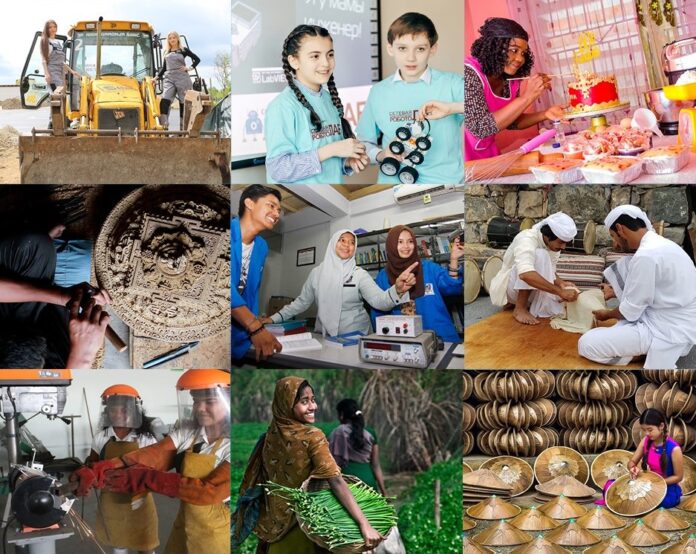In 2016 there were 259 million young people classified as NEET – a number that rose to an estimated 267 million in 2019, and is projected to continue climbing to around 273 million in 2021. In terms of percentage, the trend was also slightly up from 21.7% in 2015 to 22.4% in 2020 – implying that the international target to reduce the NEET rate by 2020 will be missed.
Education and training are central to the achievement of the 2030 Agenda. The vision of the Incheon Declaration: Education 2030 is fully captured by Sustainable Development Goal 4 “Ensure inclusive and equitable quality education and promote lifelong learning opportunities for all”.
More young people are staying in school instead of entering the labour market at an early age.
As youth are increasingly demanding more just, equitable and progressive opportunities and solutions in their societies, the need to address the multifaceted challenges faced by young people (such as access to education, health, employment and gender equality) have become more pressing than ever.
Prior to the current crisis, young people aged 15-24 were three times more likely than adults to be unemployed and often faced a prolonged school-to-work transition period. In post-COVID-19 societies, as young people are called upon to contribute to the recovery effort, they will need to be equipped with the skills to successfully manage evolving challenges and the resilience to adapt to future disruptions.
Views: 100






